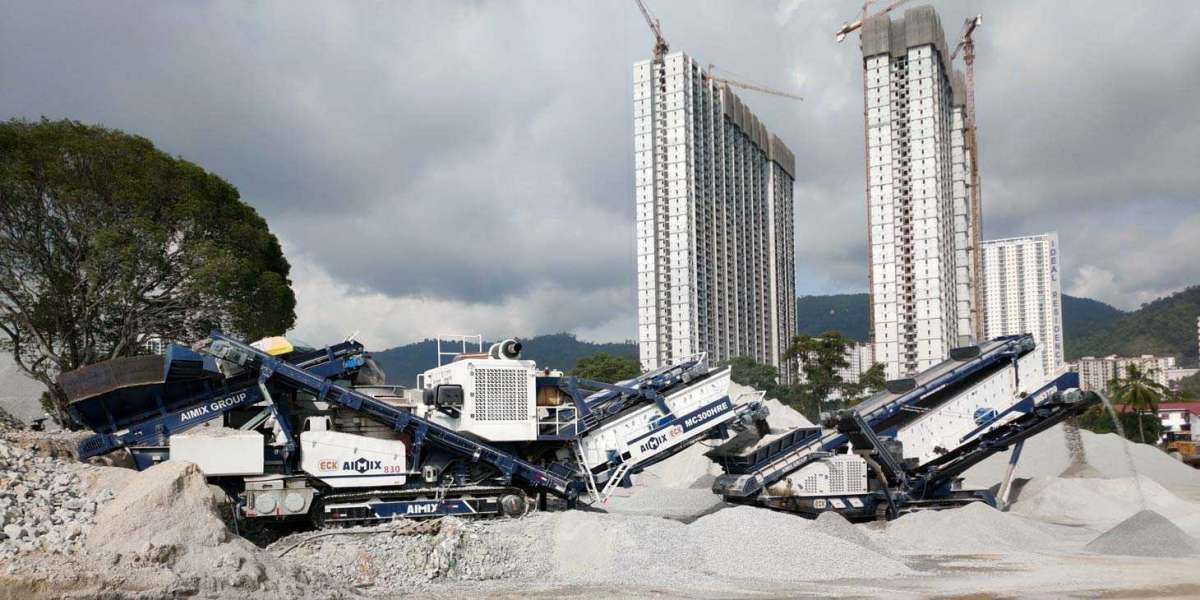In the high-stakes world of aggregate production, the choice of a 200 TPH stone crusher is a strategic decision with lasting financial and operational implications. Industrial buyers today face a saturated market filled with options that claim to deliver productivity, efficiency, and value. But beneath the marketing gloss lies a stark truth—only a handful of manufacturers truly deliver on all fronts. Among them, AIMIX, Metso, and Terex emerge as dominant contenders. Each brand brings its own engineering philosophy, pricing strategy, and after-sales infrastructure to the table. Yet, for cost-conscious contractors and quarry operators, the real question remains: who offers the best price-to-performance ratio in this competitive horsepower bracket?
To uncover the truth, we dissect the offerings of each manufacturer from three critical angles: pricing transparency, performance-to-cost efficiency, and long-term operational investment. The aim is not to simply compare 200 tph stone crusher price tags, but to analyze which crusher delivers maximum output with minimal compromise.
Price Analysis and Value Proposition
AIMIX: Cost-Conscious Without Cutting Corners
AIMIX offers its 200 TPH mobile and stationary crushers at a significantly more accessible price point compared to legacy Western brands. But what distinguishes AIMIX is its equilibrium between affordability and performance. This is not a low-cost compromise. Instead, it's a deliberate strategy focused on high return on investment (ROI) for developing markets and expanding contractors.
The Chinese-origin brand integrates robust diesel-electric drive systems, wear-resistant jaw plates, and energy-saving hydraulic circuits—all at a starting price up to 30% lower than Metso’s equivalent models. Moreover, AIMIX includes optional package deals covering conveyors, vibrating feeders, and even dust suppression systems. This bundling approach reduces overhead for buyers who want a turnkey solution.

Metso: Premium Pricing Backed by Heritage
Metso is known for engineering excellence and industrial prestige. Its 200 tph stone crusher—often from the Nordtrack or Lokotrack series—are loaded with automation, telematics, and modular upgrades. However, this comes with a steeper initial cost, often exceeding six figures in USD before customization or shipping.
While Metso positions itself as a premium solution, it seldom engages in price transparency or direct bundling. Support services, replacement parts, and operator training are add-ons, not inclusions. Buyers essentially pay a premium not just for performance, but for the brand equity and proven reliability under high-capacity loads. The question then becomes whether that premium is justifiable for a mid-sized or fast-scaling operation.
Terex: Mid-Tier Cost with Conservative Features
Terex occupies a middle ground in both pricing and capability. Their Powerscreen and Finlay models in the 200 TPH range typically fall between AIMIX and Metso in terms of base price. But the features—especially in base configurations—lack the technological sophistication of Metso and the bundled value of AIMIX.
For contractors seeking a rugged, straightforward solution with decent durability, Terex offers reliability without frills. Yet, its pricing doesn’t always correlate with cutting-edge innovation. What you're paying for is consistency, not a groundbreaking feature set or aggressive pricing model.
Performance Relative to Investment
Operational Throughput vs. Unit Cost
When measured in tons per hour per dollar, AIMIX delivers the highest throughput value. Its simplified maintenance design, lower fuel consumption, and compact footprint make it ideal for regions where cost constraints are paramount. On aggregate cost-per-ton calculations, AIMIX undercuts Metso by up to 25%, largely due to lower maintenance costs and easier part replacements.

Metso shines in automated crushing scenarios, particularly where sensor-driven optimization and predictive diagnostics matter. However, these benefits only materialize in high-volume, high-consistency operations—making it less ideal for small to medium enterprises.
Terex machines, while reliable, tend to fall short in yield optimization and adaptive functionality. The performance is consistent but static, leaving room for cost inefficiencies in changing worksite environments.
After-Sales Support and Long-Term Viability
Service Reach and Maintenance Cycles
Metso leads in global support infrastructure. Its extensive dealer networks and rapid part delivery across continents give it a distinct advantage in uptime assurance. AIMIX, though newer to Western markets, has made considerable investments in localized service teams and offers remote diagnostic capabilities for overseas clients.
Terex support varies by region and distributor strength. In markets like North America, it performs reliably. In emerging regions, however, delays in parts and service availability can pose operational risks.
Depreciation and Resale Considerations
AIMIX crushers depreciate slower than expected due to growing demand in emerging regions. Their modular construction allows for part-by-part refurbishment, which enhances resale viability. Metso, while maintaining excellent second-hand value, suffers from high replacement part costs which can deter resale purchasers.
Terex machines hold their value moderately well but are often subject to regional price sensitivity due to limited demand in certain export markets.
Final Verdict
For operations seeking a cost-effective, scalable, and low-maintenance 200 tph crusher plant solution, AIMIX currently offers the best price-to-performance balance. Metso remains the choice for legacy reliability and smart tech—but at a significant cost premium. Terex, although dependable, lacks the pricing aggressiveness and innovation to remain competitive in this horsepower bracket without supplementary advantages.







